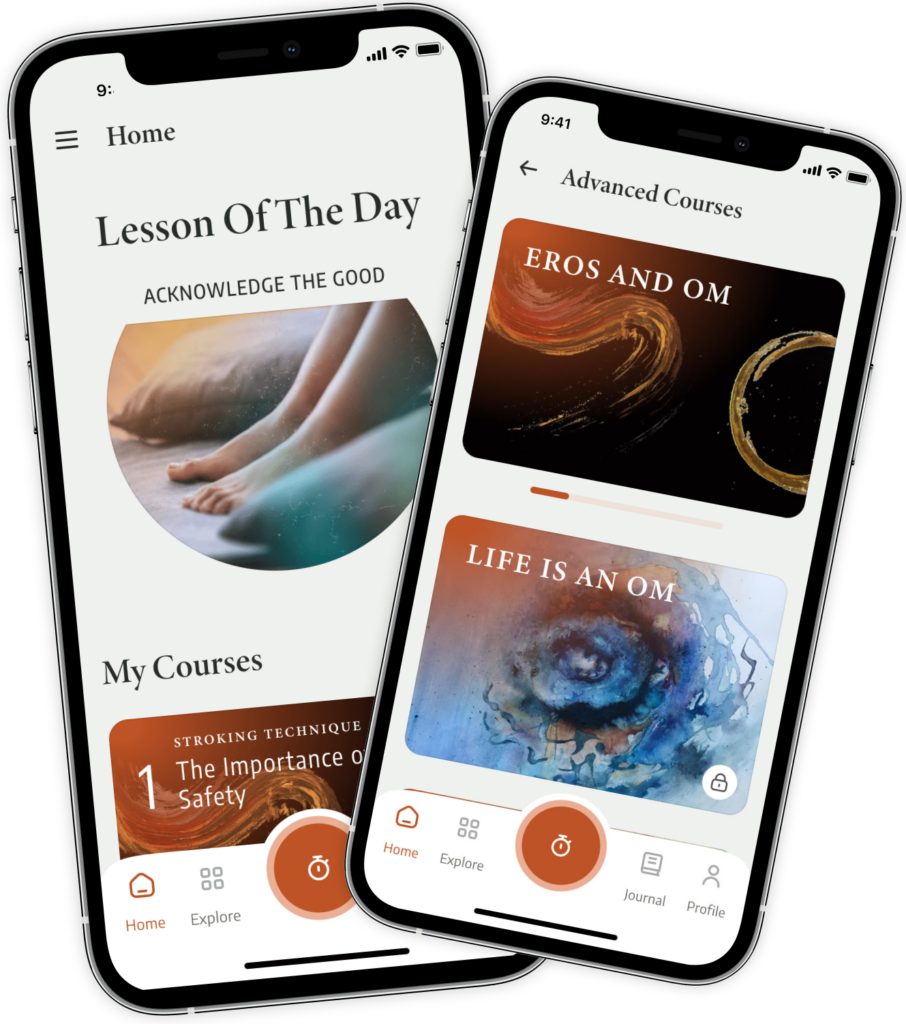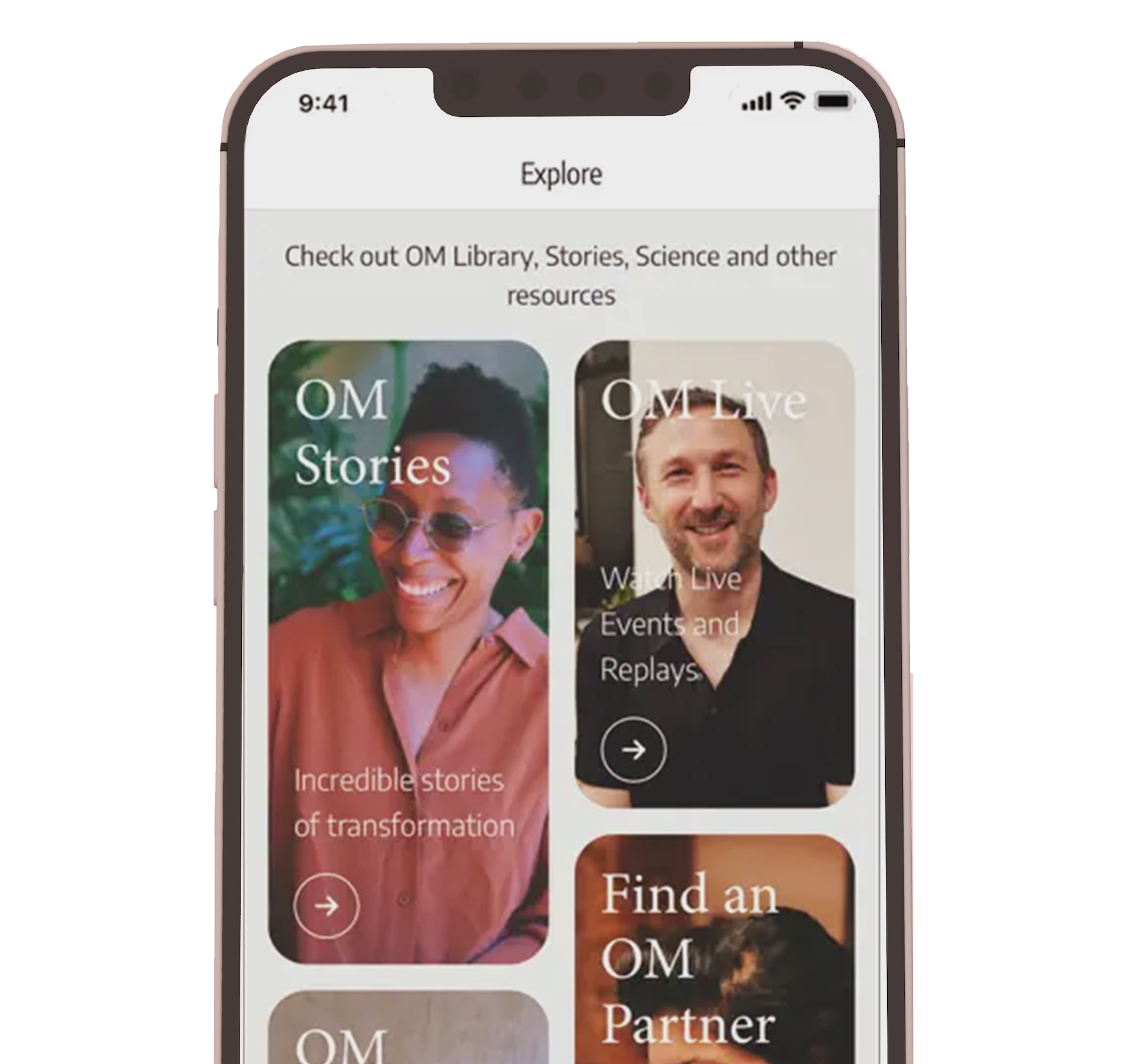
The OM App
Redefining Intimacy
and Relationships
Orgasmic Meditation (OM) is the premiere practice for accessing a mystical state that has been shown to promote human flourishing and greater resilience.
Reach Your
Full Potential
OM increases resilience and capacity for joy, using arousal to convert old patterns and the stress of everyday life.
Real Connection
A partnered meditation practice that improves your sense of connectedness with yourself and others.
Healing
through Flow
OM brings you into mystical states including oneness and flow, where healing occurs as a byproduct.

Introducing Orgasmic Meditation
Orgasmic Meditation (OM) is a structured attention-training practice done in connection. One person strokes the clitoris of the other person for 15 minutes with no goal except to feel.
Orgasm doesn’t mean climax
In OM, we learn to harness the erotic impulse, combining arousal and meditation for long term, sustained changes. OM isn't about climax, it's taking this underlying energy and using it to flourish.
OM creates a safe container for both partners to open up and feel sensation in their bodies. This state is more similar to meditation — with all of its associated benefits — than to sex.


The Science of OM
Science is indicating what practitioners of OM have known for years — OM has enormous benefits to physical, mental and emotional health.
6 peer-reviewed, IRB-approved studies have been performed to date, confirming that OM leads to improvements in the areas of trauma, depression, general health, and the advancement of human flourishing (eudaimonia).
Online Course
A Lesson Plan
For You
Answer a few questions, and our app will deliver personalized lessons and content to meet your goals.
See How OM
Has Changed People’s Lives
“I was depressed, I didn’t want to get out of bed."
–Courtenay, Teacher, New York
“Through OM I was able to heal my trauma. Different layers started peeling off.”
–Bob, Military Veteran, South Carolina
Quotes

Learn
EROS
Transform


